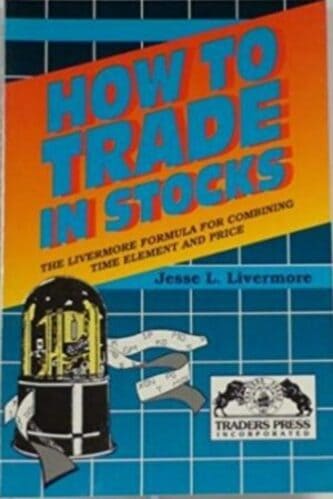Jesse L. Livermore
Jesse Lauriston Livermore (July 26, 1877 – November 28, 1940) was an American investor .
Personal History
Jesse L. Livermore is a fascinating case in which an outsider to the stock market world managed to thrive and amass vast personal wealth through ingenuity and skills gained through trading experience. Livermore left home as a teenager and moved to Boston to trade in stocks. His first position was posting stock quotes for the Paine Webber brokerage firm. By age 15, after having traded for himself for several years, Livermore had amassed a fortune of $1,000 (about $30,000 in today’s currency values).
Livermore earned money early in his investment career by betting against “bucket shops,” investment houses which allowed customers to make wagers on the price of stocks without actually investing in those stocks. Although Livermore was not formally educated in the practice of trading stocks, he did well enough that all of the bucket shops in Boston banned him. Thus, at age 20, Livermore moved to New York, where he continued his speculative trading as an individual. Livermore enjoyed many successes, but he also suffered from significant losses at various points. His career and life ended with his tragic suicide at the age of 63.
Investment Philosophy
Livermore was an embodiment of the “self-made man.” His investment strategy was gleaned exclusively from the bets that he made and his reactions to the results, some of which were successful and others of which were not. Over the course of his career, Livermore accumulated a number of major principles by which he made investment decisions, and a number of these have remained popular axioms for investors today .
- Money is not made in day trading on price fluctuations. Livermore emphasized the importance of focusing on markets as a whole, rather than on individual stocks. He noted that greater success comes from determining the direction of the overall market than attempting to pick the direction of an individual stock without concern for market direction.
- Adopt a buy-and-hold strategy in a bull market and sell when it loses momentum. Livermore always had an exit strategy in place.
- Study the fundamentals of a company, the market and the economy. Livermore separated successful investors from unsuccessful investors by the level of effort they put into investing.
- Investors who focus on the short term eventually lose their capital.
- Ignore insider information; make your own independent analysis. Livermore was very careful about where he got his information and recommended using multiple sources.
- Embrace change in adapting investing strategies to evolving market conditions.

